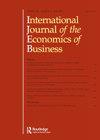保密信息下的逆向支付与破产风险
IF 0.9
Q3 BUSINESS
International Journal of the Economics of Business
Pub Date : 2019-06-04
DOI:10.1080/13571516.2019.1613146
引用次数: 3
摘要
在制药行业中,反向付款(延迟付款)是发起人向仿制药生产商支付延迟其进入的费用。在最近的一些案件中,美国和欧盟的反垄断当局禁止了这些协议本身,而在其他案件中,他们则采用了理性原则。本文分析了它们的动态效应,表明在仿制药生产商可能破产且其财务状况属于私有信息的情况下,禁令本身会减少消费者剩余。当少数参与者之间的竞争较弱,经济处于低迷状态,专利到期后的药物使用时间较长时,反向支付更有利。结果表明,理性规则本身比禁令更合适。本文章由计算机程序翻译,如有差异,请以英文原文为准。
Reverse Payments and Risk of Bankruptcy Under Private Information
Abstract In the pharmaceutical industry, a reverse payment (pay-for-delay) is a payment from an originator to a generic producer to delay her entry. In some recent cases, the US and EU antitrust authorities have banned these agreements per se, while in others they have used a rule of reason. This paper analyzes their dynamic effects and shows that a ban per se may reduce consumer surplus when the generic producer may go bankrupt and her financial situation is private information. Reverse payments are more beneficial when competition among few players is soft, the economy is in a downturn, and the period of drug usage after patent expiry is long. Results suggest that a rule of reason is more suited than a ban per se.
求助全文
通过发布文献求助,成功后即可免费获取论文全文。
去求助
来源期刊
CiteScore
2.60
自引率
8.30%
发文量
9
期刊介绍:
International Journal of the Economics of Business presents original, peer reviewed research in economics that is clearly applicable to business or related public policy problems or issues. The term "business" is used in its widest sense to encompass both public and private sector—governmental, private non-profit and cooperative organizations, as well as profit-seeking enterprises. International Journal of the Economics of Business carries papers relating to three main spheres: The organization—to analyse and aid decision making and the internal organization of the business; The industry—to analyse how businesses interact and evolve within and across industries.

 求助内容:
求助内容: 应助结果提醒方式:
应助结果提醒方式:


